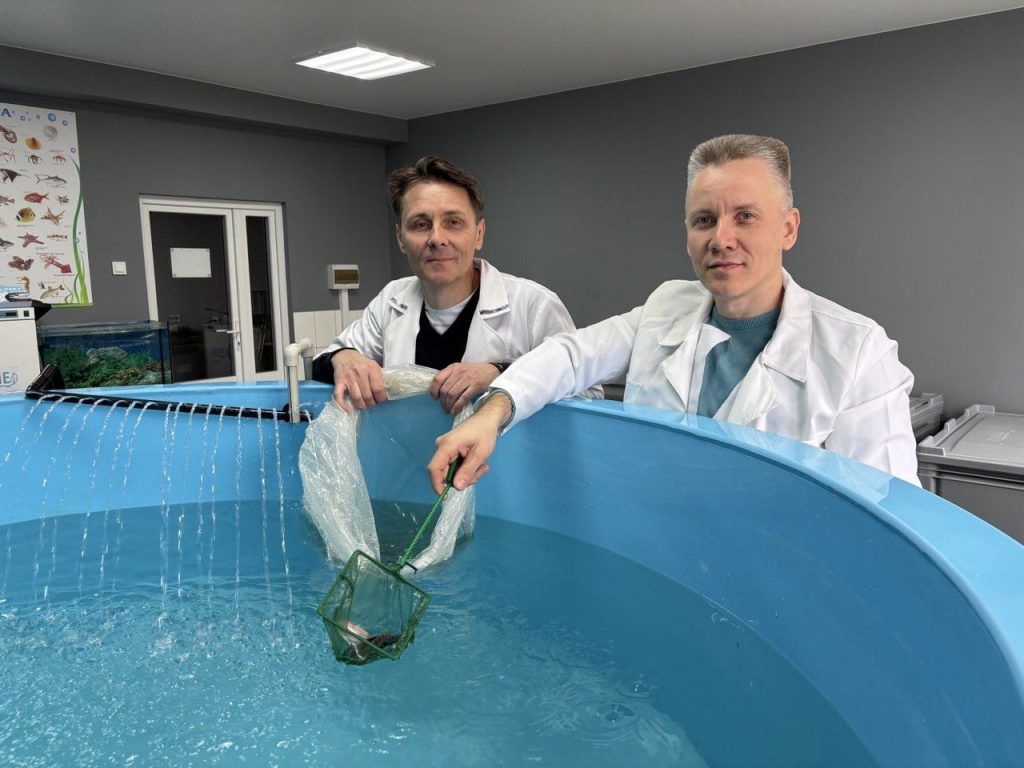At the Faculty of Biology and Technology, farming of tilapia (Tilapia spp.) has been initiated within the aquaculture training and research laboratory. The project is designed to explore the methods of maintaining and cultivating this promising fish species, which is gaining popularity in global aquaculture due to its rapid growth, resilience, and high nutritional value.
The Aquaculture Laboratory
The Aquaculture Laboratory was established through the international AFISHE Erasmus+ project and is dedicated to investigating the conditions for rearing freshwater fish and crustaceans. Its advanced equipment enables precise control of water parameters, optimisation of feeding systems, and comprehensive study of the biological characteristics of the species under cultivation.
Highlights of Tilapia Farming
- Rapid Growth: Under favourable conditions, the fish reach marketable size within 6–8 months.
- High Resilience: Tilapia can withstand fluctuations in temperature and water quality.
- Optimal Water Temperature: A temperature range of 25–30°C promotes accelerated growth.
- Herbivorous Diet: Their plant-based feeding habits allow for the use of economically viable feeds.
Project Objectives
- To study the adaptation of tilapia to various rearing conditions.
- To optimise feeding strategies and water recirculation systems.
- To investigate the impact of environmental parameters on the fish’s growth rate.
- To provide students with practical training for careers in modern fisheries.
This project marks an important step forward in advancing the faculty’s aquaculture expertise, affording students valuable hands-on experience in the cultivation of commercially significant fish species.


